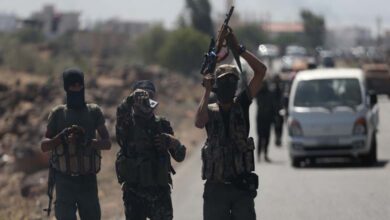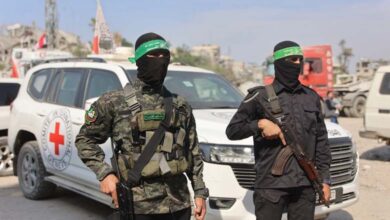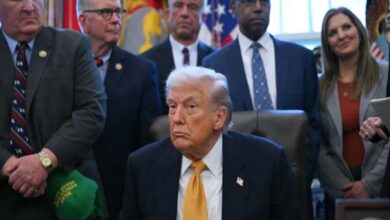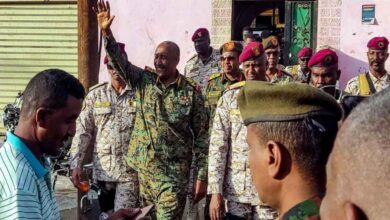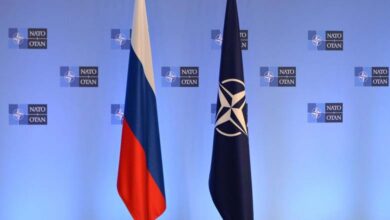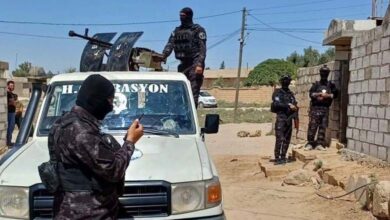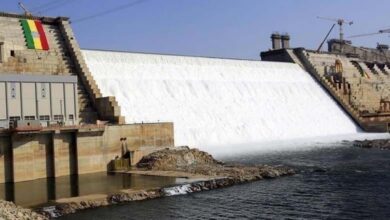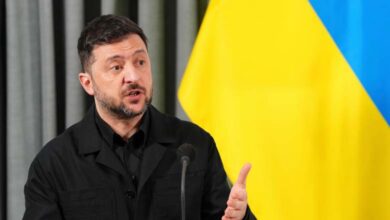Nechirvan Barzani Calls for Helping Ahmad Al-Sharaa Bring Syria Out of Crisis
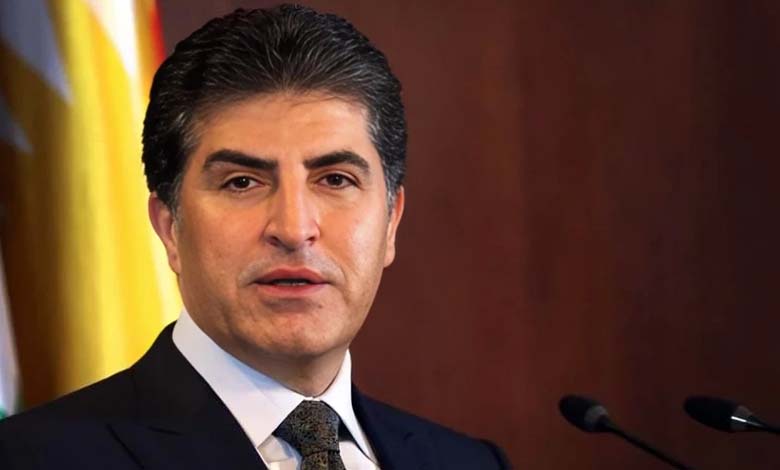
The President of the Kurdistan Region expresses his willingness to assist the new Syrian authorities in promoting internal dialogue and establishing a political system that represents all Syrians, diverging from Baghdad’s reserved stance.
Nechirvan Barzani, President of Iraq’s Kurdistan Region, has expressed his willingness to help the new Syrian authorities foster internal dialogue to resolve the country’s crisis and establish an inclusive political system that represents all segments of Syrian society. This stance contrasts with the cautious approach of the central Iraqi government, which remains wary of developments in neighboring Syria.
During an interview with the Kurdish Rudaw channel, Barzani stated: “During my discussions with Syria’s Foreign Minister, we emphasized that the new Syria must be a civil state founded on ethnic, linguistic, and cultural diversity, where all components—Kurds, Arabs, Christians, Alawites, and Druze—feel like full Syrian citizens.”
-
Al-Sharaa Pledges to Form an Inclusive Government in His First Speech to Syrians
-
A Secret Intelligence Deal between Turkey and Hayat Tahrir al-Sham… What Are the Details?
Iraqi Prime Minister Mohammed Shia’ Al-Sudani had previously set conditions for strengthening relations with Syria’s new leadership, particularly in combating the terrorist organization ISIS and countering Israeli incursions into Syrian territories.
The Iraqi government’s failure to congratulate Ahmed Al-Sharaa on his appointment as Syria’s transitional president, along with the absence of any formal acknowledgment from official Iraqi bodies, has raised questions about the future relationship between the two neighboring countries. It also sparks speculation on whether Iraq’s stance aligns with that of Iran, an ally of ousted Syrian President Bashar Al-Assad, and how this might impact security cooperation between Baghdad and Damascus.
-
Syria Monitor: 101 dead in clashes between pro-Turkish, Kurdish forces
-
Who is General Marhaf Abu Kasra, the New Syrian Defense Minister?
However, Nechirvan Barzani did not impose conditions for supporting the Syrians. Instead, he stressed the need to back internal dialogue, stating, “Syria is a country that cannot be governed by a single ideology. A unilateral administration will never succeed in such a diverse society. From what we have observed in President Ahmed Al-Sharaa’s views, he is genuinely striving to find effective solutions to the country’s crises.”
He added, “If this is truly their policy and it serves Syria’s interests, it deserves support—not just passive observation. We must actively assist, because I believe this is a significant opportunity for the Syrian people, and if it is lost, it is unclear what the alternative for Syria would be.”
-
Al-Sharaa Pledges to Form an Inclusive Government in His First Speech to Syrians
-
The U.S. Administration and Syria: Caution and Skepticism Towards the New Regime Led by Ahmad Al-Sharaa
Barzani recalled the measures taken by the Kurdistan Region after the fall of the previous Syrian president, Bashar Al-Assad, to protect the Kurds, stating, “It was only natural for us to take action in the Kurdistan Region, especially since the events in Syria unfolded rapidly and unexpectedly. Our initial focus was on protecting the Kurds there, and we maintained continuous communication with Turkey, the United States, and European nations to achieve this goal. I believe we contributed to calming the situation in certain areas.”
He emphasized the need for Kurdish participation in shaping Syria’s future, stating, “The next phase now involves ensuring the Kurds’ participation in building the new Syria and engaging with Damascus to be part of the new government formation. We believe this is a great opportunity for all Syrians, and if missed, the alternative remains uncertain.”
-
The Fate of Syrian Officers in Iraq Depends on Agreements with Syria
-
Syria Accuses Hezbollah of Carrying Out Attacks and Sponsoring Cross-Border Smuggling
The Syrian authorities had previously excluded the Kurdish administration and the Syrian Democratic Forces from national dialogue sessions due to their refusal to surrender their weapons and integrate into the army, a move that sparked widespread criticism and accusations of reinstating a centralized authoritarian state.
Nechirvan Barzani reiterated that “the Kurdistan Region will continue to play a supportive and assisting role in any effort aimed at establishing peace, stability, and the inclusion of all Syrian components in shaping the country’s future.” This statement suggests a potential rapprochement between Damascus and representatives of Syria’s Kurdish community.
-
Syrian Kurds Plan to Empty Jihadist Camps by the End of the Year
-
Al-Sharaa Pledges to Form an Inclusive Government in His First Speech to Syrians
Iraq, however, remains highly cautious about developments in Syria due to several factors, most notably Iranian influence, given Tehran’s extensive leverage over Iraq’s ruling system, which is led by a Shiite-majority coalition of allied parties.
Despite Iraqi Foreign Minister Fuad Hussein’s announcement that Baghdad would officially invite all Arab leaders and presidents to attend the upcoming Arab Summit in Baghdad in May, including Al-Sharaa, Iraqi MP Thaer Al-Jubouri clarified on Tuesday that no official invitation had yet been extended to the current Syrian president.
-
Security Chaos Returns to Syrian Regions… Hayat Tahrir al-Cham Members Top the List of Accused
-
“The Passage is closed”: Syria Announces Interception of Weapons Bound for Hezbollah
In an interview with the Iraqi news site Baghdad Today, Al-Jubouri stated that reports of Iraq’s Foreign Ministry officially inviting Al-Sharaa to Baghdad were inaccurate, emphasizing that no official invitation had been issued so far.
He added, “The issue is generally complex. Iraq is closely monitoring developments in the region and making decisions in accordance with its national interests, especially amid the rapid pace of regional events and the many variables at play.”
-
How ISIS Fighters in Northern Syria Could Benefit from Turkey’s Ambitions
-
Libyan Muslim Brotherhood Member Incites Armed Resistance Inspired by Syrian Factions
He also pointed out legal obstacles concerning Al-Shara’s status, stating, “There are indeed discussions between the Supreme Judicial Council and the government regarding this issue from a legal perspective and how to handle it. However, as of now, neither the Iraqi government nor its Foreign Ministry has extended any invitation to the Syrian president to attend any conference in Baghdad.”
He concluded, “If an invitation is extended in the future, further details will be disclosed, and there will be an official position from Baghdad or political forces. However, for now, we reaffirm that no official invitation has been sent to the Syrian president.”
-
US Plans to Adjust Humanitarian Aid Policies for Syria Without Lifting Sanctions, Sources Reveal
-
Europe and Syria After al-Assad: “A New Political Beginning”


